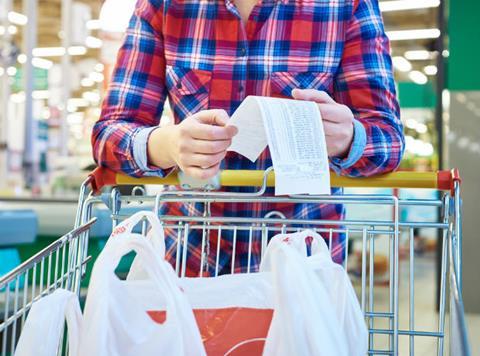
The government is being urged to postpone incoming Brexit border checks until October 2024 to avoid making food more expensive for Brits.
The Cold Chain Federation, which represents chilled logistics businesses in the UK, warned Defra that the physical controls on EU goods starting on 30 April would “increase food prices and reduce consumer choice”.
The trade body told environment secretary Steve Barclay in a letter that he should delay the implementation of the new Border Target Operating Model (BTOM) for another six months to “address serious issues in consultation with the food logistics industry”.
Beefed-up checks on incoming goods, part of London’s post-Brexit deal with Brussels, have already been postponed five times in the past three years.
The most recent delay was put in place by Rishi Sunak’s government last year over fears it would ramp up food inflation amid the cost of living crisis.
SPS checks on goods are now set to roll out on 30 April. But several figures in the food industry have told ministers that the UK’s borders are not yet prepared to handle the incoming flux of physical controls.
In its letter to Defra, the CCF questioned the readiness of Border Control Post (BCP) facilities due to staffing shortages and unfinished infrastructure.
Fresh Produce Consortium chief Nigel Jenney added: “The lack of adequate support to provide official inspectors through the night at control points is simply shocking – we all know that’s when EU perishables arrive in the UK.”
Both groups have also raised concerns about the disruption of “impractical” 24-hour pre-notification requirements for the groupage model – when goods dispatched by several different companies are grouped into a same load – which is crucial for many small producers and retailers.
The widely anticipated delays and added costs linked to the new checks would not only disrupt trade but also result in higher prices for consumers, several sector representatives have warned in the lead-up to the 30 April deadline.
“Even before its full implementation, it’s becoming evident that BTOM is a broken model”, said CCF CEO Phil Pluck.
“Without listening to the experts, the government will seriously damage business confidence in the UK and add costs to consumers’ weekly shop.”
A Defra spokesperson told The Grocer that the new border controls were “being introduced progressively following extensive consultation with industry” and were “necessary to protect the UK’s biosecurity from potentially harmful pests and diseases”.
Read more: Brexit import charges will ‘cripple the industry and drive up food prices’
But the CCF wants government to assess the operational capacity of all BCP facilities “urgently” and to disclose the real costs of BTOM and its predicted impact on food inflation before fully implementing checks on imports.
Last October, the government estimated the additional checks would cost businesses an extra £330m a year, and add less than 0.2 percentage points to food inflation over the next three years.
But a recent report by Allianz Trade showed the new rules were expected to cost businesses approximately £2bn and contribute to higher inflation.
As the products most affected by Brexit checks, including dairy, meat and fish, represent around 6% of the basket of goods used to calculate UK headline inflation, those additional costs could raise inflation by 0.2%, the report said.
Meanwhile, the EU has had those very same checks in place for all British exports since the UK officially parted ways with the bloc in 2021.
The UK farming and manufacturing sectors, whose closest trading partners are EU countries, are staunchly opposed to another delay to the controls.
They argue it leaves them at a competitive disadvantage with their continental counterparts, which have faced no red tape when exporting to the UK for the past three years.
One senior farming figure opposing delays to import controls said the UK needed to “take control of its borders” and that businesses incurring costs due to Brexit friction wasn’t “a bug in the system – it’s a designed feature of the road we’ve chosen to go on”.



















No comments yet